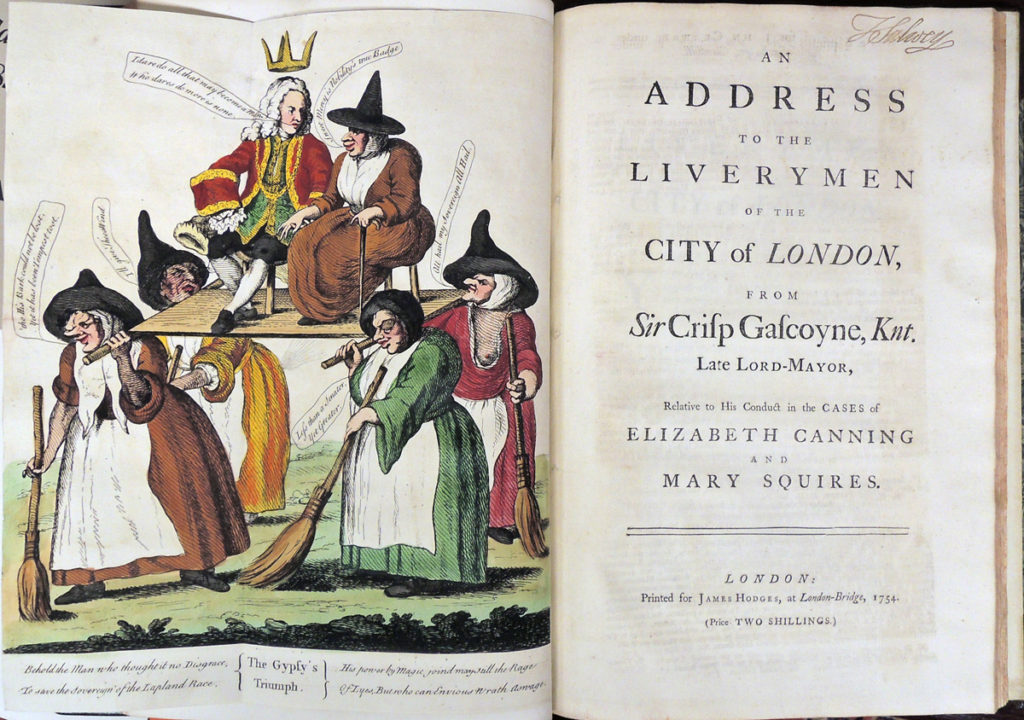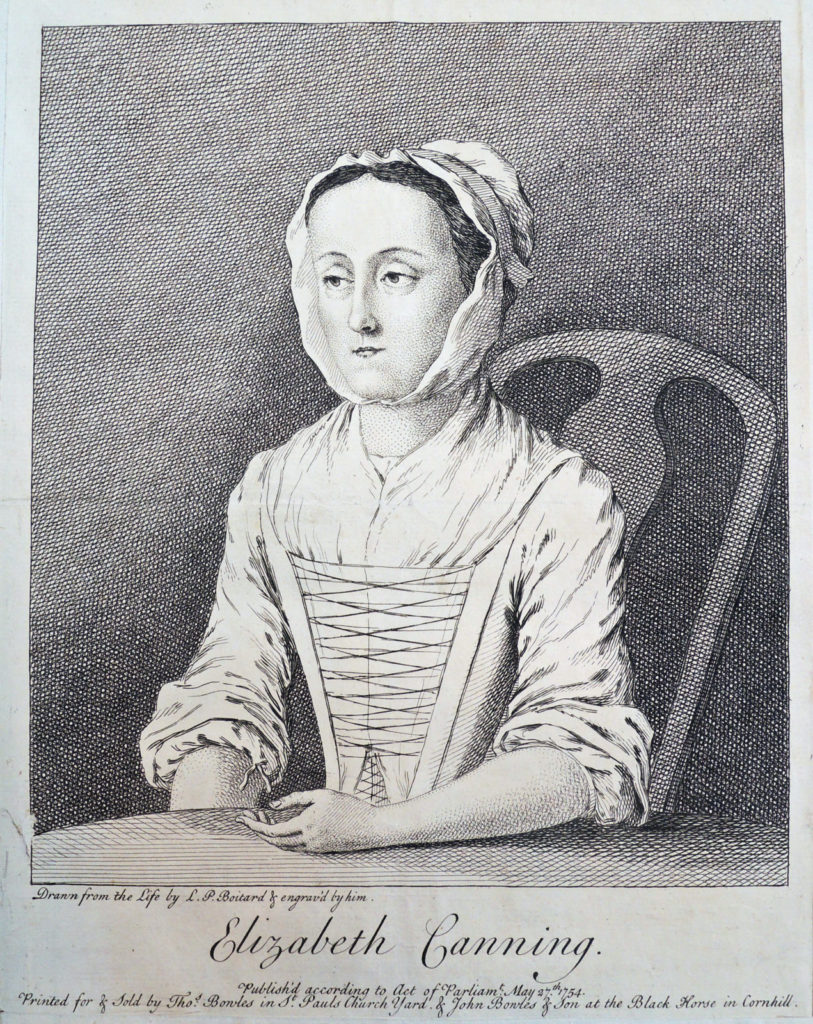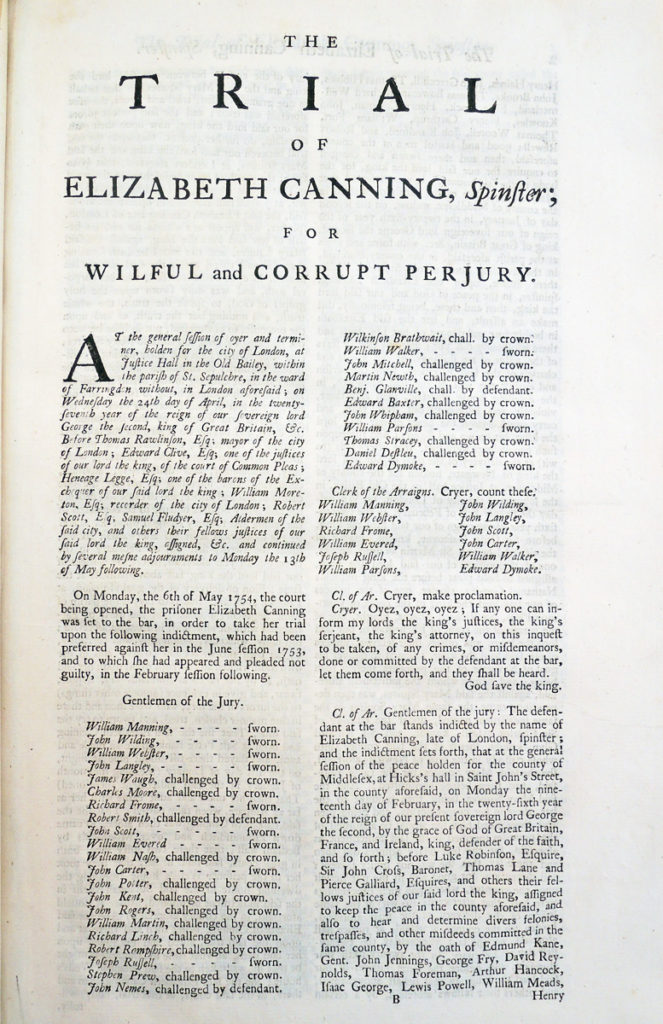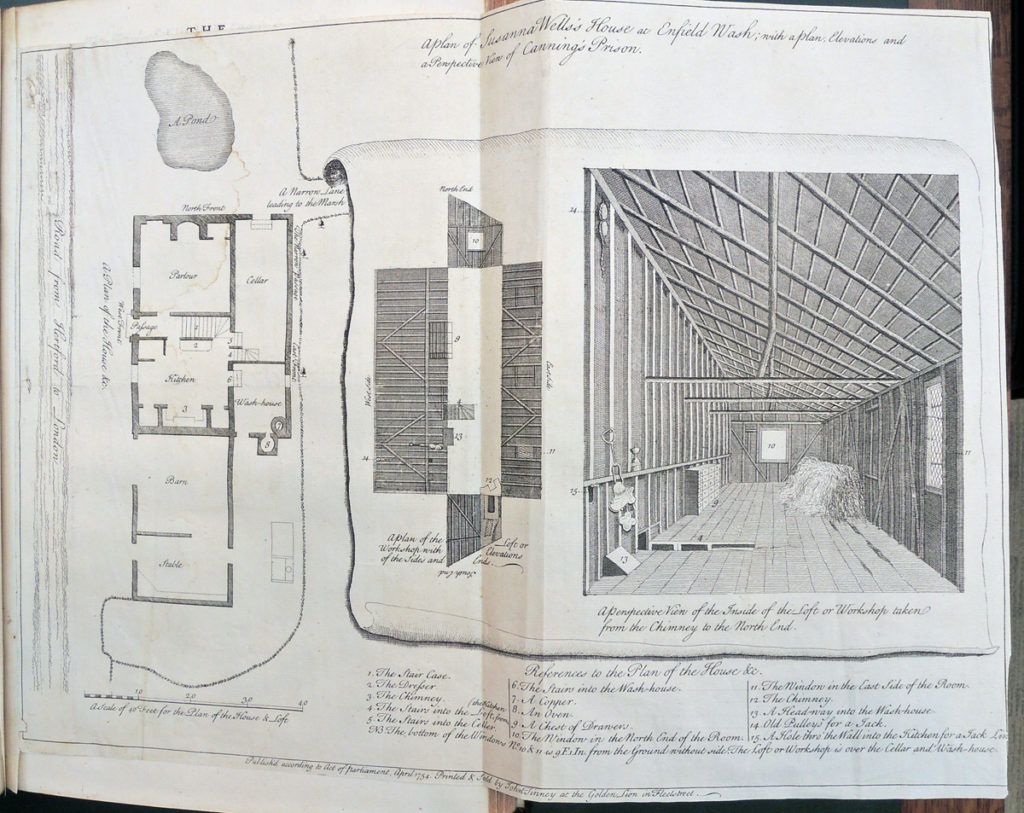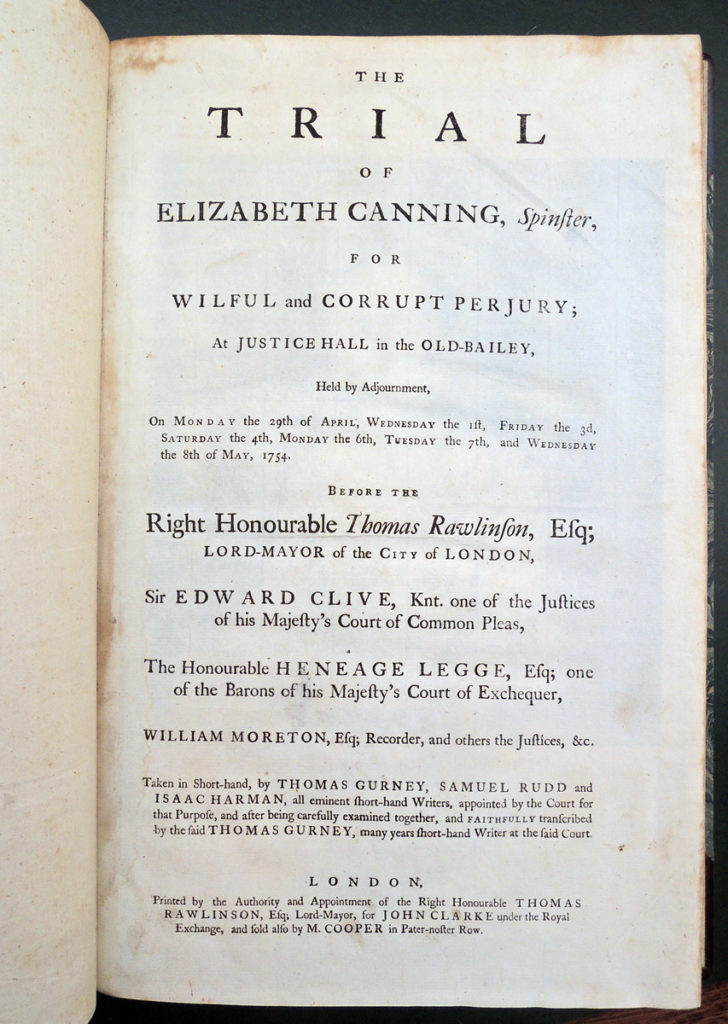 The Trial of Elizabeth Canning, Spinster, for Willful and Corrupt Perjury; at Justice Hall in the Old-Bailey, held by Adjournment, on Monday the 29th of April, Wednesday the 1st, Friday the 3d, Saturday the 4th, Monday the 6th… (London: printed by the authority and appointment of the Right Honourable Thomas Rawlinson Esq; Lord Mayor, for John Clarke under the Royal Exchange, and sold also by M. Cooper in Pater-Noster Row, [1754]).
The Trial of Elizabeth Canning, Spinster, for Willful and Corrupt Perjury; at Justice Hall in the Old-Bailey, held by Adjournment, on Monday the 29th of April, Wednesday the 1st, Friday the 3d, Saturday the 4th, Monday the 6th… (London: printed by the authority and appointment of the Right Honourable Thomas Rawlinson Esq; Lord Mayor, for John Clarke under the Royal Exchange, and sold also by M. Cooper in Pater-Noster Row, [1754]).
Bound with Crisp Gascoyne, An Address to the Liverymen of the City of London, from Sir Crisp Gascoyne, Knt. Late Lord-Mayor, relative to his conduct in the cases of Elizabeth Canning and Mary Squires (London: printed for James Hodges at London-Bridge, [1754]).
Bound with additional trials. Graphic Arts Collection 2017- in process
The Graphic Arts Collection recently acquired this volume of several trial transcripts bound together and extra illustrated with a hand colored etching entitled The Gypsy’s Triumph, a satire on the Elizabeth Canning affair. The print depicts Crisp Gascoyne and Mary Squires (the old gypsy) carried in triumph by four old gypsies with broomsticks and wearing pointed hats.
There are many versions of this curious story. A brief description was posted on The Londonist’s site:
“It’s 1 January 1753, in the City of London. An 18 year old maidservant disappears on the way back to her mother’s house near St Mary Aldermanbury. She wasn’t seen or heard from until nearly a month later, when she reappeared, dirty and bloodied, in ripped clothing. The maidservant was Elizabeth Canning. She claimed to have been kidnapped from near Bedlam Hospital and taken to a house on Hertford Road in Enfield. Here, a woman tried to force her into prostitution. When she refused, she was kept prisoner until she escaped through a window and managed to return home. Her disappearance has been the source of speculation and theories ever since. She identified Enfield woman Mary Wells and Romany woman Mary Squires as her captors. They both went to trial — despite Squires having an alibi, she was sentenced to hanging, while Wells was sentenced to branding on the thumb and six months in prison. Sir Crisp Gascoyne, who was Lord Mayor of London and Chief Magistrate, opened his own inquiry which led to the King granting a pardon. Canning herself was then indicted for perjury, found guilty and sentenced to one month imprisonment, after which she was sent to America. The truth about the case was never revealed.” http://londonist.com/2016/03/the-curious-case-of-elizabeth-canning
See also: Sir Crisp Gascoyne (1700-1761), An address to the liverymen of the city of London: from Sir Crisp Gascoyne … relative to his conduct in the cases of Elizabeth Canning and Mary Squires (London: Printed for James Hodges, 1754). Rare Books (Ex) Oversize HV6248.C15 G3q
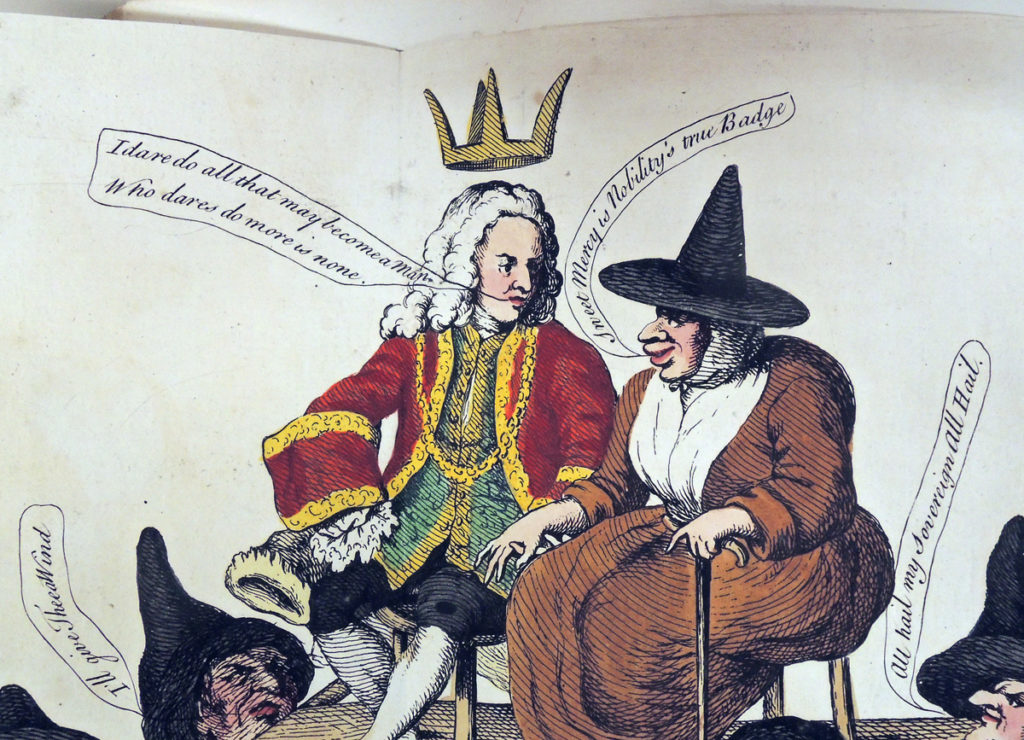 “I dare do all that may become a man, Who dares do more is none.”
“I dare do all that may become a man, Who dares do more is none.”
“Sweet Mercy is Nobility’s true Badge.”

